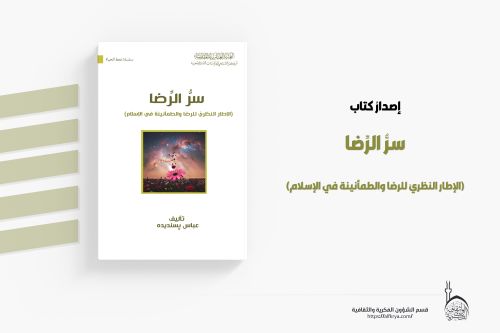

Grammar


Tenses


Present

Present Simple

Present Continuous

Present Perfect

Present Perfect Continuous


Past

Past Continuous

Past Perfect

Past Perfect Continuous

Past Simple


Future

Future Simple

Future Continuous

Future Perfect

Future Perfect Continuous

Passive and Active


Parts Of Speech


Nouns

Countable and uncountable nouns

Verbal nouns

Singular and Plural nouns

Proper nouns

Nouns gender

Nouns definition

Concrete nouns

Abstract nouns

Common nouns

Collective nouns

Definition Of Nouns


Verbs

Stative and dynamic verbs

Finite and nonfinite verbs

To be verbs

Transitive and intransitive verbs

Auxiliary verbs

Modal verbs

Regular and irregular verbs

Action verbs


Adverbs

Relative adverbs

Interrogative adverbs

Adverbs of time

Adverbs of place

Adverbs of reason

Adverbs of quantity

Adverbs of manner

Adverbs of frequency

Adverbs of affirmation


Adjectives

Quantitative adjective

Proper adjective

Possessive adjective

Numeral adjective

Interrogative adjective

Distributive adjective

Descriptive adjective

Demonstrative adjective


Pronouns

Subject pronoun

Relative pronoun

Reflexive pronoun

Reciprocal pronoun

Possessive pronoun

Personal pronoun

Interrogative pronoun

Indefinite pronoun

Emphatic pronoun

Distributive pronoun

Demonstrative pronoun


Pre Position


Preposition by function

Time preposition

Reason preposition

Possession preposition

Place preposition

Phrases preposition

Origin preposition

Measure preposition

Direction preposition

Contrast preposition

Agent preposition


Preposition by construction

Simple preposition

Phrase preposition

Double preposition

Compound preposition


Conjunctions

Subordinating conjunction

Correlative conjunction

Coordinating conjunction

Conjunctive adverbs


Interjections

Express calling interjection


Grammar Rules

Preference

Requests and offers

wishes

Be used to

Some and any

Could have done

Describing people

Giving advices

Possession

Comparative and superlative

Giving Reason

Making Suggestions

Apologizing

Forming questions

Since and for

Directions

Obligation

Adverbials

invitation

Articles

Imaginary condition

Zero conditional

First conditional

Second conditional

Third conditional

Reported speech


Linguistics

Phonetics

Phonology


Semantics


Pragmatics

Linguistics fields

Syntax

Morphology

Semantics

pragmatics

History

Writing

Grammar

Phonetics and Phonology

Semiotics


Reading Comprehension

Elementary

Intermediate

Advanced


Teaching Methods

Teaching Strategies
Emerging issues for academic writing
المؤلف:
Carmela Briguglio
المصدر:
Enhancing Teaching and Learning through Assessment
الجزء والصفحة:
P21-C2
2025-05-28
79
Emerging issues for academic writing
As this diagnostic process for academic writing continues to be implemented and adapted, a few issues are emerging which will require our attention. Such issues include those described below.
First is the issue of how and when the task will be implemented. Initially the writing task was implemented in collaboration with other academic staff during the first week of tutorials and results were communicated to students through tutors. In future it may be simpler to establish a time when students can sit the task during week 1 and then mail results back to students. This is the procedure that has been established for semester 2, 2005.
Should follow-up seminars be compulsory for students in the bottom bands of the scale? The pressure from staff for students to improve their writing skills is mounting, so that it is possible that in future students in bands 5 and 6 will be obliged to attend, at least for a minimum number of (possibly six) seminars.
Pressure is also emerging from some staff to make the task a language 'test' rather than keeping it chiefly for diagnostic purposes. Since students have already demonstrated English competency in one of a number of ways before being accepted into the university, we feel it is important that the diagnostic purpose of the task be adhered to and will resist any pressure for a 'test'.
We need to monitor the program of support seminars to ensure that it is effective in supporting students and that the needs of students in academic writing are indeed being met. There are a number of issues related to how we can measure the effectiveness of the support program and therefore, indirectly, justify its costs to administrators.
Finally, a number of other people, both inside Curtin and in other universities, have taken the band scales and adapted them, as well as the writing task, to suit their own particular contexts. It will be interesting to see the developments resulting from this.















 قسم الشؤون الفكرية يصدر مجموعة قصصية بعنوان (قلوب بلا مأوى)
قسم الشؤون الفكرية يصدر مجموعة قصصية بعنوان (قلوب بلا مأوى) قسم الشؤون الفكرية يصدر مجموعة قصصية بعنوان (قلوب بلا مأوى)
قسم الشؤون الفكرية يصدر مجموعة قصصية بعنوان (قلوب بلا مأوى) قسم الشؤون الفكرية يصدر كتاب (سر الرضا) ضمن سلسلة (نمط الحياة)
قسم الشؤون الفكرية يصدر كتاب (سر الرضا) ضمن سلسلة (نمط الحياة)

















